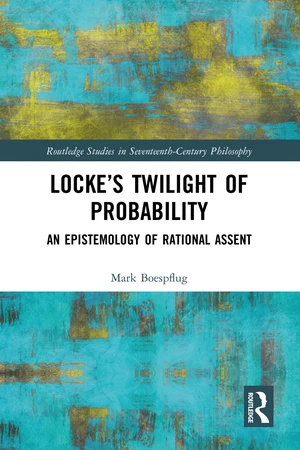This book provides a systematic treatment of Lockeâs theory of probable assent, and shows how the theory applies to Lockeâs philosophy of science, moral epistemology, and religious epistemology. There is a powerful case to be made that the most important dimension of Lockeâs philosophy is his theory of rational probable assent, rather than his theory of knowledge. According to Locke, we largely live our lives in the âtwilight of probabilityâ rather than in âthe sunshine of certain knowledge.â Lockeâs theory of probable assent has far-reaching significance insofar as it contains a wealth of novel, independently interesting, and prescient elements that precede the modern field of formal epistemology. In this book, the author argues for the central role of probable assent in Lockeâs philosophy. Lockeâs theory of probable assent is based on an epistemic modesty that claims, roughly, that our cognitive abilities are limited and that we ought to carry ourselves in believing with due caution. This modesty motivates the authorâs discussion of other aspects of Lockeâs epistemology, notably his principle of proportionality, his doxastic involuntarism, his epistemological pragmatism, and his theory of testimony. The book concludes by connecting the theory of probable assent with Lockeâs views on the limits of science, moral epistemology, and the rationality of faith. Lockeâs Twilight of Probability will appeal to scholars and advanced students working on Locke and the history of early modern philosophy.
Price history
Oct 27, 2022
€42.03

